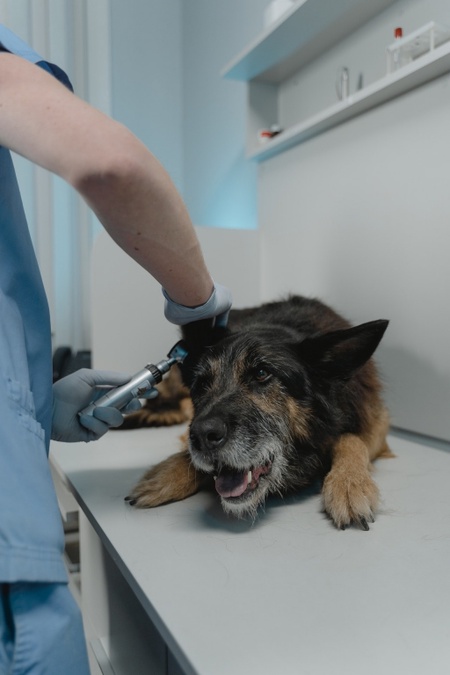New research looks at the impact of incivility on veterinary staff
Covid-19 Lockdowns provided an opportunity for many more people to bring a pet into their lives but new research has found that rudeness towards veterinary staff is linked to increased levels of anxiety and depression, alongside a greater risk of burnout and may prompt some to re-consider their future in the profession.
Led by psychologists at the University of Aberdeen the research, published in the journal Veterinary Record looked at both client and co-worker incivility towards vets and veterinary nurses based across the UK and Ireland.
The research follows previous studies which have highlighted aggressive clients as a stressor for vets working alone, particularly when working on-call or at night.
The initial Aberdeen-led interview study focused on client incivility published in Veterinary Record in December was followed up with a more detailed questionnaire-based study examining client and co-worker incivility completed by 252 veterinary staff, currently in-press with Veterinary Record.
Dr Amy Irwin from the University of Aberdeen’s School of Psychology led the research. She said: “Previous studies have looked at incidents of aggression but we wanted to establish the impact of low-level but more regular adverse behaviour towards veterinarians, how this is affecting their work and mental health and how they can be supported.
“The first study highlighted the importance of client behaviour, with veterinarians reporting that experiencing multiple instances of client rudeness could lead to them withdrawing from clients, either through reducing working hours or on-call commitments, or via a change in career focus.
“With reports showing that more than three million UK households have acquired a pet since the start of the pandemic*, vets are under increased pressure.
“Clients themselves might also be struggling, with the financial aspect of veterinary care provision highlighted as a sensitive area, with several participants describing incidents that began when the client received the bill. Participants suggested this type of reaction could sometimes be based on client guilt, where the client chooses not to proceed, or refuses a treatment, because they cannot afford it.”
However, despite recognising that negative behaviours from pet owners often arose from difficult circumstances, vets reported that rudeness towards them still had a detrimental impact, especially when they felt the target was themselves or their clinical abilities.
Dr Irwin added: “We found that self-identity as a veterinary professional, linked to the desire to protect and help animals, was a contributing factor to responses to incivility.
“When that desire was questioned, or the veterinarian was blamed for a poor outcome, this had an adverse impact.”
The questionnaire results expand on the interview findings, illustrating veterinary staff can experience rudeness from both clients and co-workers with varying effects. Client incivility was linked to increased anxiety and risk of burnout, potentially explained by the concept of emotional labour where veterinary staff must provide professional ‘service with a smile’ even if the client is behaving rudely.
Rudeness from senior colleagues was tied to reduced job satisfaction and increased likelihood of quitting. Veterinary nurses in particular may be more at risk of leaving their practice or the profession if they are not provided with support from their organisation.
The studies recommend a number of actions to reduce the impact on incivility upon vets including generating a supportive workplace environment by encouraging staff to discuss rude incidents to gain support from colleagues and building procedural support mechanisms, such as guidelines for managing uncivil clients, protocols for taking additional staff into a consult and re-allocating client consults to allow veterinarians time to recover after an uncivil interaction.
Dr Irwin presented the findings of the research to the Veterinary Human Factors conference and the Ergonomics and Human Factors conference.


